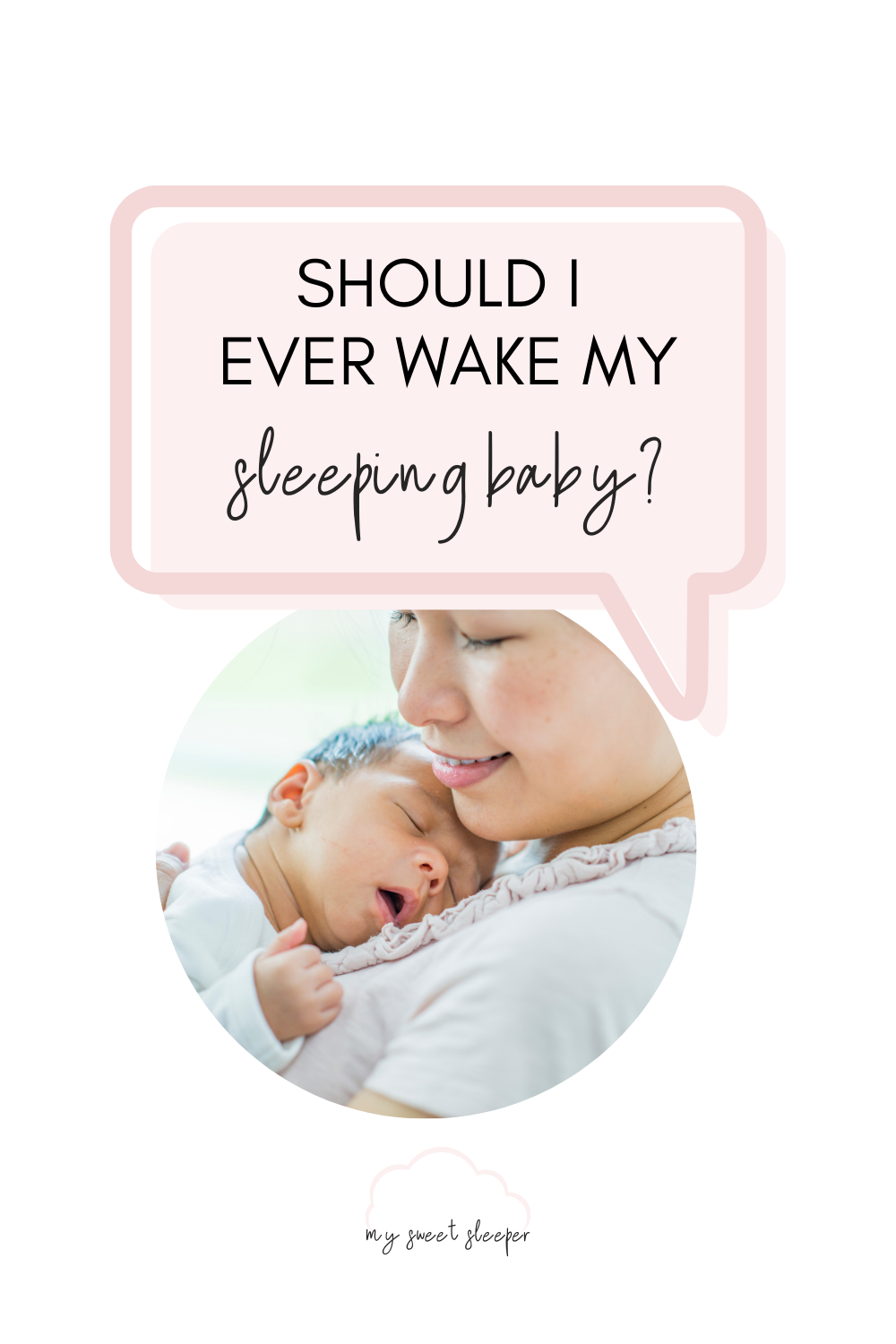Why you should wake your sleeping baby (sometimes)
Haven’t you always been given the advice to “wake your sleeping baby”?
Well, not quite; I think it’s been ingrained in all of us to “never wake a sleeping baby!”
However, it might be surprising to learn that this is simply not true. There are, in fact, a few instances when you SHOULD wake your sleeping baby.
1) Wake your baby if your newborn (less than 3 months) is napping and hasn’t eaten in about 3 hours.
One of the ways you can help your babies sleep longer stretches at night is to make sure you get their tummies full during the day. Therefore, it is best to limit daytime naps to 2-3 hours and wake your little one up to eat once she’s close to the three-hour mark. This will also help your newborn figure out the difference between day and night sleep and establish her circadian rhythm.
Keep in mind, newborns less than six weeks old need to be fed regularly throughout the night to make sure they are gaining enough weight. Sleeping longer than four-hour stretches at a time, even at night, is usually too long for newborns unless your doctor gives you the OK to let your baby sleep longer. (Related: How to Help Establish Healthy Habits for Your Newborn)
2) Wake your baby if your baby (any age) has been sleeping longer than three hours for any nap.
It might be tempting to let your baby sleep longer than three hours, because let’s be honest, having that much time to yourself is wonderful. But naps that go longer than three hours (at any age) are typically an indication that your baby is crashing, either from a night of poor sleep or prior short naps. Really long naps can also confuse your baby’s sleep cycles, making it difficult to build up enough sleep pressure (time awake) before bed or for the next nap. So, it is best to wake your sleeping baby before then.
3) Wake your baby if your baby’s nap is starting to blend into bedtime.
It is important to have a consistent bedtime for your baby, and part of being able to follow that will depend on your baby’s last nap of the day. Let’s say you’re shooting for a 7pm bedtime, and at 5pm your baby is still sleeping. This is a situation where you would want to wake up your baby to ensure there is enough sleep pressure built up before bed, so that the last nap of the day isn’t getting lumped in with nighttime sleep.
4) Wake your baby if your baby is sleeping in past 8 or 8:30am.
This one can feel counterintuitive because you may think “my baby must need to sleep in,” especially if they had a rough night of sleep. However, this is EXACTLY why you want to wake your baby if they are still asleep at 8/8:30am, because they can start to rely on that morning sleep instead of the night sleep they should be getting. It can also affect their entire nap schedule, shifting it forward or leading to a late bedtime.
5) Wake your baby to do a dream feed (optional).
So this one is purely optional, depending on whether your baby will take a dream feed or not and if doing so helps your baby sleep longer stretches. It doesn’t work for all babies, but if you find that a dream it is helpful, my recommendation is to attempt a dream feed between 9:30 and 10:30pm.
Although it feels almost painful to us to wake a sleeping baby, following these guidelines will help you and your baby get more of the sleep you need!
For more sleep guidance, feel free to contact us or try our newborn sleep course or 4-12 month sleep course.
Related Articles:
Five Child Sleep Myths That Might Surprise You

